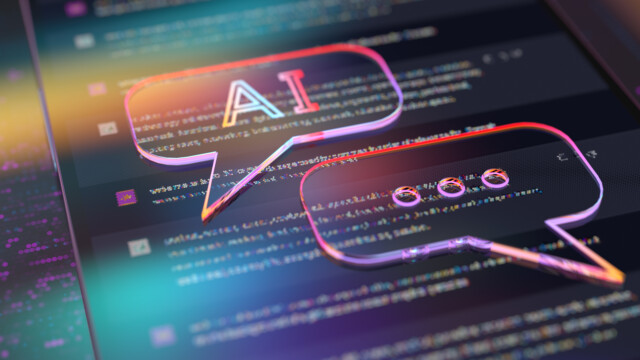Is AI Coming for My Fundraising Job?

The sudden prevalence of AI is in many ways astounding. We heard mere whispers of its potential three years ago and now we find it present in almost every app, feature, and technology. As AI has become more and more ubiquitous in our day-to-day lives, corporations and nonprofit organizations alike have adopted AI to increase efficiencies and reduce manual work.
According to a survey by Google.org, over half of nonprofits (58%) are now using AI for some daily operations.
As AI analyzes more data, creates better content, and sounds increasingly human, some niggling thoughts enter our minds:
- Am I needed?
- Is what I do something AI could do instead?
- Could AI connect with donors?
- Could AI fundraise better than I can?
The answer is probably not what you want to hear: maybe.
It’s possible that AI will take over your role—if you let it. You have the choice. You can craft your own career path, but how you should go about it may surprise you. Ready for some irony? AI could help you keep the fundraising job you’re worried about losing to AI.
What AI Can Do and What It Can’t
Before we get into whether AI is going to take over your fundraising job, let’s cover what AI is capable of and what’s beyond its reach. While AI can make workflows more efficient, it does have limitations.
| AI Can | AI Cannot |
| Draft email newsletters | Send email newsletters to the right set of recipients |
| Draft emails to donors | Build and cultivate relationships with the donors who matter |
| Provide suggestions and predictive insights | Be truly creative |
| Analyze vast quantities of data | Replace human judgment in complex decision-making |
Let’s take a look at how this plays out in real life. The CEO of the language learning app Duolingo, Luis von Ahn, shared in a podcast interview that the company did not renew some contracts with hourly employees because the contractors were asked to do very rote language tasks that computers were just as good at. In this instance, AI did take over the contractors’ work. This, however, wasn’t the case for full-time employees at Duolingo.
“What we’re seeing [at Duolingo], at least for our full-time employees, is not that we’re able or even want to replace them. What we’re seeing is just way more productivity, to the point where people are able to concentrate on higher level cognitive tasks rather than rote things,” von Ahn said.
The same concept can be applied to nonprofit fundraising. If you focus on manual tasks within your role, then yes, AI may take over your job. It’s great at automating tasks and streamlining processes. It excels at sorting through vast quantities of data and identifying patterns.
But AI can’t build relationships. It can’t come up with truly ingenuitive ideas. And it can’t make decisions for your organization’s mission and direction.
The personal connections fundamental to nonprofit fundraising and major donor stewardship and the strategic initiatives that drive impact cannot be replaced by AI, only enhanced.
AI Won’t Take Your Job; People Who Know How to Use AI Will
If your job involves emotional intelligence, creativity, and strategic decision-making, it’s unlikely that AI will take your job. However, employees who leverage AI might.
Stanford and MIT conducted a study on the productivity of more than 5,000 customer support agents at a Fortune 500 company who used a generative AI-based conversational assistant. Access to the AI tool increased productivity by an average of 14%. For novice participants, productivity increased by 34%.
In another research study of Boston Consulting Group consultants, the consultants were divided into two groups: one with access to GPT-4 and the other group without access. The consultants with access to AI were significantly more productive, completing 12% more tasks, completing tasks 25% more quickly, and producing results of 40% higher quality.
Currently, knowing how to use AI gives you a competitive edge, a tool to add to your resume, the likes of Blackbaud certification or Google Analytics skills. But eventually, it’ll be a must-have rather than a nice-to-have skill. Those who master AI and become more productive in their day-to-day work will be the ones who rise to the top.
AI Is Your Ally in Preventing Burnout
It’s no secret that nonprofit professionals suffer from burnout more than any other industry. Strapped for resources, strapped for time, fundraisers end up working long hours, bombarded by manual tasks that don’t move the needle.
The Chronicle of Philanthropy found that burnout and limited staff support has almost half of fundraisers eyeing the door, with 28% planning to leave the profession altogether. Unfilled fundraising positions have left 90% of fundraisers with more work and more stress:
- 94% feel tremendous pressure to succeed
- 82% say fundraisers are underappreciated
- 91% want more time with donors
- 76% want more time off
Unsurprisingly, a Gartner analysis shows that more time working does not result in higher performance, just an exhausted staffer.
Moreover, proactive, accessible rest contributes to a 26% increase in employee performance and a significant reduction in the number of employees experiencing burnout.
Instead of thinking of AI as competition, think of it as a helping hand. It’s your assistant, taking the tedious tasks off your plate and giving you more hours in the day for productive, strategic thinking and quality relationship-building.
When you use it to benefit your productivity and creativity, AI may actually help you keep your fundraising job by preventing burnout.
AI, Your Fundraising Partner
So, is AI coming for your job? It’s possible.
But, if you’re a passionate individual with the desire to build relationships that push your organization’s impact forward, then AI could be the resource you’ve been searching for. AI will give you the breathing room you need to continue being successful in the nonprofit world.
See how AI changes the game for major gift officers
To get started with AI, learn everything you can about how AI can apply to your fundraising role. Then, explore AI applications that will help you save time and reduce burnout, such as the tools and innovations from the AI experts at Blackbaud.
